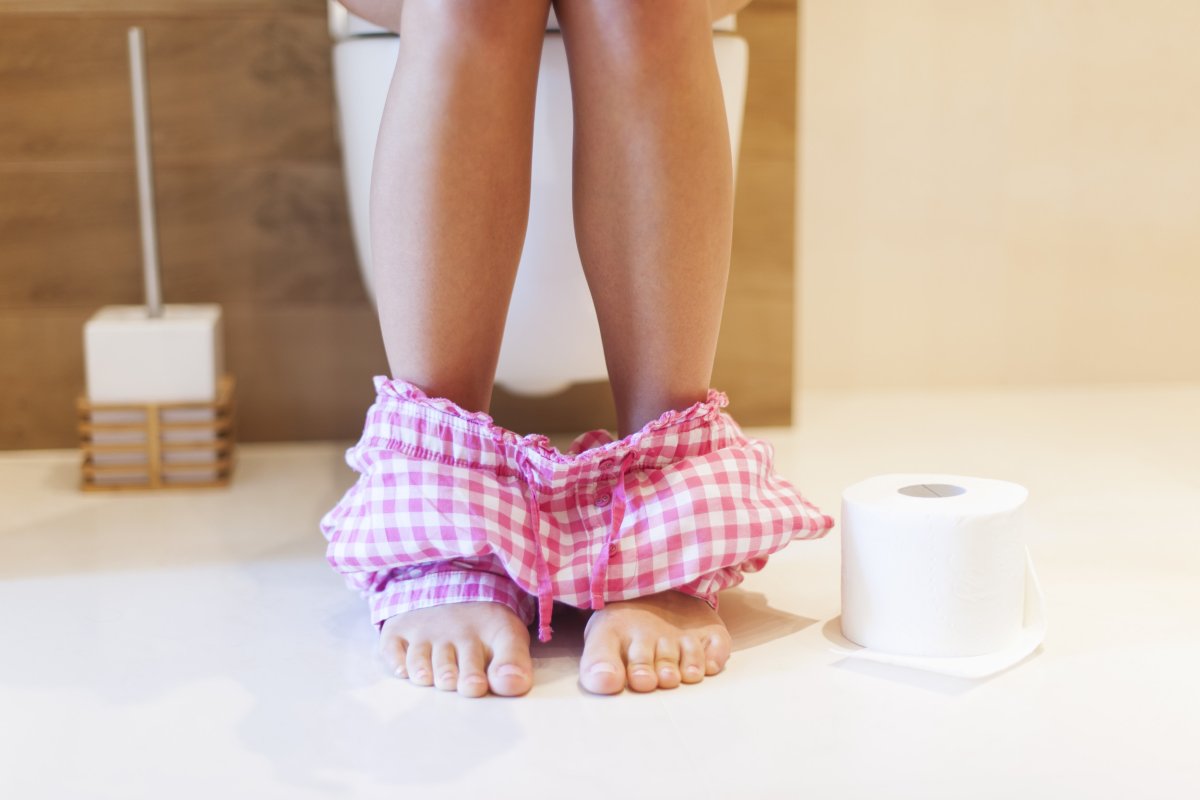For many women, blood is the least of their period troubles. It is well known that menstruating can bring pain, cramping, acne, mood swings—but a lesser-known symptom is period poops.
The toilet symptoms of periods have sparked conversations on social media, so Newsweek approached two nutritional therapists about it.
“Period poo is a bout of diarrhea or loose stools just before or at the start of your period,” Laura Southern, nutritional therapist at London Gynaecology, told Newsweek. “It is often different and smellier than your regular stools, and it can be following a bout of constipation.”
Southern said that while she didn’t have statistics on how common period poops were, “working with women with hormonal and digestive complaints, it is common.”
Nutritional therapist Marjolein Dutry van Haeften, of Hormoniously, told Newsweek: “A lot of clients report that, the day their period starts, they notice very loose stools compared to normal.
“For some clients who have more inflammatory conditions, this can be bad enough to impact being able to leave the house for a considerable amount of time.”
Both experts explained that period poops were largely connected to the chemicals involved in cramping, called prostaglandins.
“The cramps that we feel on our period are muscular cramps that are designed to help our body shed the lining of the uterus,” said Dutry van Haeften. “The same chemicals that cause uterine cramps also cause digestive cramps, which can contribute to loose stools.”
She explained that prostaglandins, produced by the body to stimulate cramps, are released locally in the pelvic region, affecting the uterus and the digestive system as contractions and localized inflammation.
“The menstrual phase is a more inflammatory state of the cycle because of this, so some people experience other inflammatory symptoms in the body,” said Dutry van Haeften.
Southern added that bowel changes could also be linked to dietary changes that happen before or on the period.
“You might have food cravings causing you to eat slightly different foods, or more foods than usual,” she said. “Food craving foods are often high in sugar or [ultra-processed foods], which can cause digestive disturbances.”
The stress and pain associated with menstruation might have an impact on digestion too, Southern said.
But there is a hormonal element to this too, particularly concerning progesterone: a key female sex hormone.
Levels of progesterone are high in the two weeks leading up to the period—called the luteal phase—but drop when the period starts. Dutry van Haeften said that progesterone can cause digestive muscles to relax.
“The impact on the digestive tract could be a slowing down of peristalsis, which are the contractions that move food through the digestive system and out of the body,” she said. “Some people experience constipation in their luteal phase because of this.”
In other words, digestion is slower in the weeks leading up to the period, and then speeds up during the period, which may mean that the gut feels blocked up and then all that gets released: period poops.
Southern said that low levels of progesterone during the period can also have a negative effect on mood, leading to more food cravings and stress, which both contribute to gut distress.

Stock image of the feet of a woman using the toilet. Many women experience toilet troubles on their periods, but period poops can get easier with better gut health, nutritionists say.
gpointstudio/Getty Images
But period poops can be an indicator of wider gut problems, said Dutry van Haeften, tending “to impact those who already describe their digestion as unpredictable.”
“From a functional perspective, if we’ve done some microbiome testing, we often see dysbiosis—an imbalance of bacteria,” she said.
The good news? Both nutritional therapists said there were plenty of ways that women could ease their symptoms and reduce the likelihood, and severity, of period poops.
“Try to include plenty of supportive fiber,” said Southern. “Seeds are great; chia and ground flax are very supportive for bowel movements and hormone balance.
“Stewed apple is gentle on the gut and anti-inflammatory, so can be supportive. Try and avoid high levels of sugar, alcohol and [ultra-processed foods] as much as possible, as these will all increase digestive discomfort.”
She added that a gentle fiber supplement, a couple of weeks before the period, or supplementing with the beneficial yeast Saccharomyces boulardii, could be effective for some women.
Dutry van Haeften said that women should work on bacterial balance throughout the month, with fiber to support healthy and regular bowel movements.
She also recommended taking steps to reduce inflammation, for instance by eating plenty of antioxidant-rich foods (such as brightly colored fruits and vegetables), getting enough high-quality sleep, spending time in nature, doing some gentle movement, and eating sources of omega-3, such as oily fish.
“Make more time for yourself at this time of the month,” said Dutry van Haeften. “Honoring where you are at in terms of your cycle phase—follicular, luteal, menstrual—can be really helpful for managing symptoms.”
Do you have a tip on a food story that Newsweek should be covering? Is there a nutrition concern that’s worrying you? Let us know via [email protected]. We can ask experts for advice, and your story could be featured in Newsweek.
